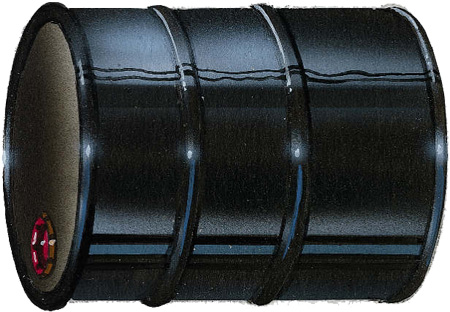Jun
10
Why Gas Prices Won’t Likely Go Down Soon
June 10, 2013 | Leave a Comment
Almost everyone from the consumer to the giant oil company is tired of the very high crude oil prices seen now for over a year. For consumers it’s a drain and a competitor to other disposable income purchases. For oil companies the high prices over a long time sets up an expectation that rises will stay up and misdirect investments funds, cause excess spending and raise internal costs. The ride down, when it comes will be much better for the consumer than the oil industry.
But that just sets up another price rise cycle.
The two factors in crude oil prices going up and down are the demand driving prices and production pushing prices. For Americans and other developed economies the demand has backed off, but the developing economies have just kept on demanding so world crude prices haven’t gone down.
But supplies, especially in the U.S. have risen dramatically. That should push prices lower, and a lot, but something is in the way.
Geoffrey Styles writes in the blog Energy Outlook about the petroleum industry, the most succinct and on point commentary and information source of a complex industry. Mr. Styles posted a question last Friday and set out to answer if U.S. oil trends might change how crude oil prices are set.
The facts are not a happy circumstance for energy consumers or the oil industry.
Here’s why: Crude oil comes in grades that range similar to the familiar motor oil in the engine of your car to about as hard as hot asphalt laid out to be compressed and leveled into a road surface. What crude oil is where and where it needs to get to for making useful gasoline, diesel, jet fuel and other products is a major logistical problem.
It would amaze most people to know how much petroleum products from crude oil to little cans of lighter fluid get moved around. There’s the clue – one major difficulty to getting consumer prices down is getting the crude to a processing refinery.
Another part to the point is the refineries that process crude oil are designed to work with particular ranges of crude oil. A refinery that is designed for the light motor oil type crude oils is years away from being rebuilt to handle oil with the consistency of play dough and vice versa as well.
The world is using about 85 million barrels of oil a day and a few weeks worth is moving around every day. We can move the crude, moving the oil fields isn’t possible, and moving or refurbishing the refineries is economically impractical.
For many the idea that the new oil discoveries and production technologies like hydraulic fracturing will make the U.S. energy independent. That could be a fact with a few caveats.
The crude oil needs to get to where it can be processed. The refineries in the U.S. do not match the crude supply with the product demand. To get the products made much of the new production in the U.S. will have to be exported to refineries that can get the job done.
That’s where the transport issue comes in – most U.S. crude oil exports are banned by law – and the exceptions are less than optimal for U.S. consumers.
Even more economically damaging is crude we can use is bottled up on rail cars while the government dithers on a pipeline to get heavy Canadian crude to heavy oil refineries in Texas and Louisiana.
As Mr. Styles pointed out rather kindly, “the US oil export policy merits a thorough reevaluation” is quite an understatement.
The reality is likely to be a huge, but quiet lobbying effort to get something done to the get crude where it needs to be and products to consumers. The effort might well fail.
But the truth will likely be that consumers won’t get the price break anytime soon. Instead due to miss-matched crude to refinery capacity we’ll see regional price spikes, gluts, transportation problems and still higher prices.
Someday an enterprising soul will map the transit routes of various crude oils to the products sold to consumers. That will be an eye popper.
Meanwhile, the government sets out barriers with regulations, delays or permission denials, lawsuits are tolerated, and people understandably don’t want development in “their back yard”.
Crude oil on to gasoline are available because businesses expect to make some money. As society adds on the costs the costs get rolled into the prices. We will see some break in crude oil prices, but the next time the consumer prices will not fall so much. Too many costs are being added in for the full impact to get to you and me.


